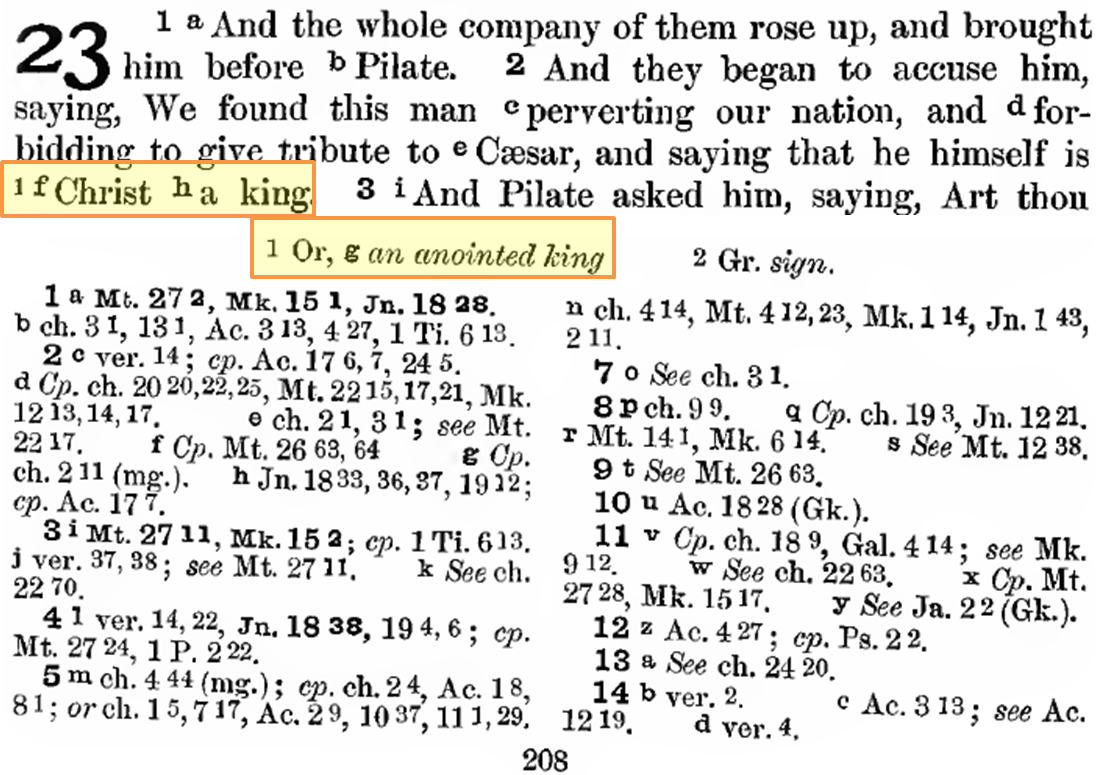In Luke 23:2, the Greek text states,
Βʹ ἤρξαντο δὲ κατηγορεῖν αὐτοῦ λέγοντες Τοῦτον εὕρομεν διαστρέφοντα τὸ ἔθνος καὶ κωλύοντα Καίσαρι φόρους διδόναι λέγοντα ἑαυτὸν Χριστὸν βασιλέα εἶναι TR, 1550
Most English translations translate «Χριστὸν βασιλέα» as “Christ, a king,” wherein Χριστὸν is functioning as a substantive. However, the Revised Version includes in the footnote “Or an anointed king.”
Does the grammar allow the translation of «Χριστὸν βασιλέα» as “an anointed king,” where Χριστὸν is functioning as an adjective rather than a substantive?
